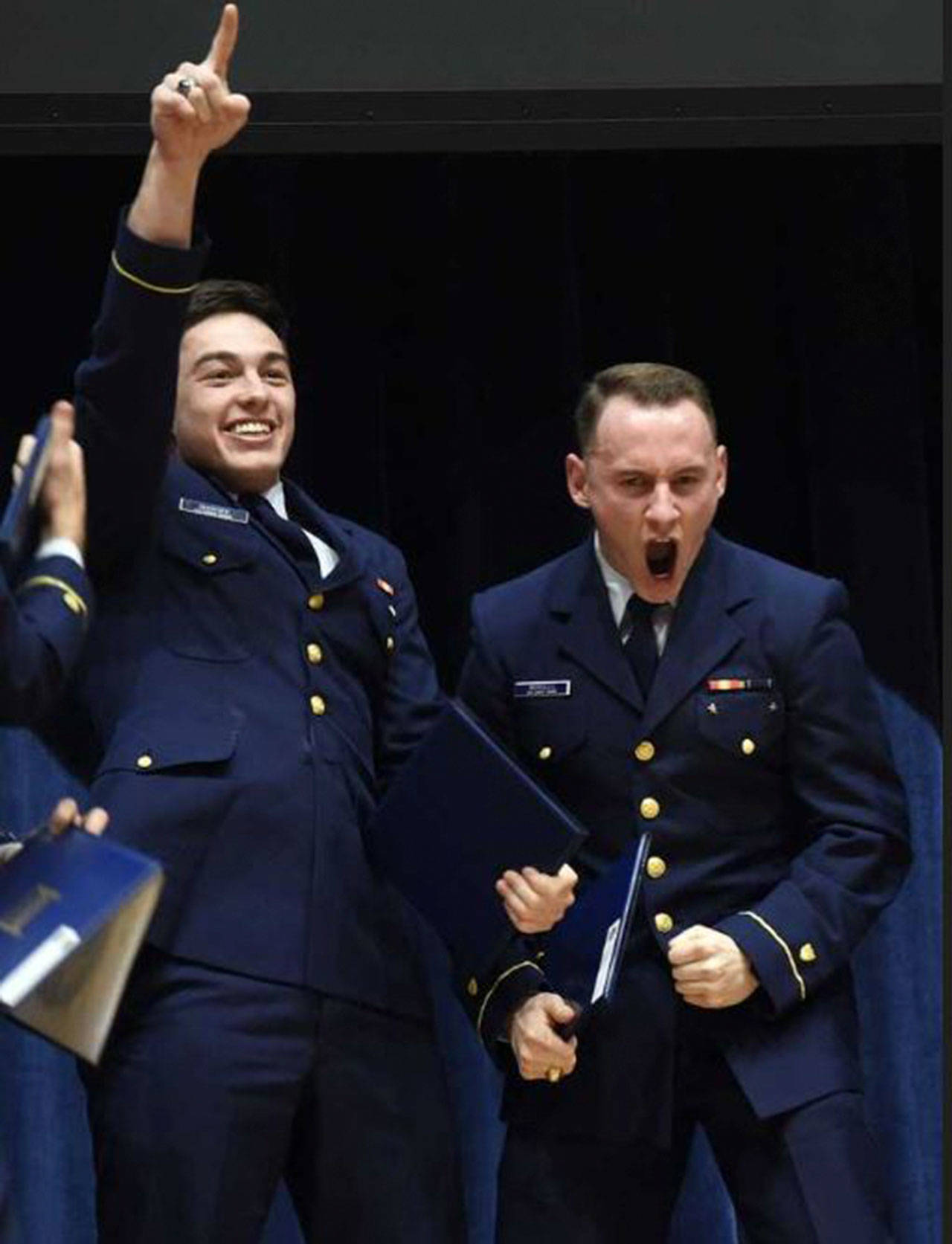SEQUIM — Like thousands of other college students across the country, Miguel Moroles and other U.S. Coast Guard Academy students are on extended leave from their campus, taking classes online and awaiting changes to their class schedules during the new coronavirus pandemic.
But Moroles and a select few from the academy have some extra studies they hope to start a little later this year.
A former Sequim High School football and track standout, Moroles this spring was one of 20 cadets from a class of about 265 to be selected for flight school.
“The way they [announce] it is, they call you up in front of your classmates and faculty and they give you a folder. As you open your folder there’s a PowerPoint for everyone to see,” Moroles said. “It was pretty surreal.”
Flight school selections are based on grades and military performance at the academy in New London, Conn., scores on a flight aptitude test take as a first class cadet, and results of a flight physical exam, according to the U.S. Coast Guard website.
Aviators of all U.S. sea-going services train at Naval Air Station in Pensacola, Fla., in fixed and rotary wing trainers, and land-based simulators.
According to the U.S. Coast Guard, that branch of service has more than 800 qualified pilots — a higher percentage of pilots than any other U.S. military branch (including the Air Force) and more pilots than ship drivers.
Moroles said he’s aimed at a career in the U.S. Coast Guard for years, hoping to follow in the footsteps of his father, Master Chief Lawrence “LP” Moroles, who retired from a 30-year career in the service in June 2015.
Perseverance pays off
A 2015 Sequim High School graduate, Miguel Moroles was an all-Olympic League first-team quarterback and helped Sequim’s 4×400 relay team take first place at the Class 2A state track and field championships in his senior year.
He applied for the U.S. Coast Guard Academy following high school graduation but wasn’t accepted.
“It definitely was pretty hard — I was optimistic about my chances to get in,” Moroles said in a 2016 interview.
Moroles spent his freshman year at Washington State University in Pullman and then reapplied, earning his acceptance after gathering letters of recommendation from high school staffers and retaking the ACT test in hopes that boosted scores would make him a more attractive candidate.
It probably didn’t hurt that he was a two-sport star athlete. Moroles wound up competing for the U.S. Coast Guard Academy’s football and track teams over the past four years.
“I definitely had a lot of fun; we went to a couple outdoor meets… and I got to go to different places [and] run against some fast people,” he said of the academy’s track team, while football was enjoyable for the team atmosphere.
“Each [team] had their perks,” he said.
As for academy life, Moroles said the first couple of years in particular were tough.
“It wasn’t until the end of my sophomore year, beginning of my junior year that I found my friend group,” he said.
Between studies in civil engineering, Moroles enjoyed spending time with fellow students from across the country.
“You’re able to bond with people through such a hard time,” Moroles said.
Graduates in May
Moroles said he’s scheduled to go back to the academy over the summer to oversee some incoming freshmen programs (dubbed “Swab Summer”) before heading to flight school on Aug. 3.
“That date could obviously change,” Moroles said.
Moroles said that beyond graduating from flight school he hopes to fly the same helicopters (MH-65s) Peninsula locals are familiar with that fly out of Coast Guard Air Station Port Angeles.
“I definitely want to come back to the Northwest,” Moroles said.

